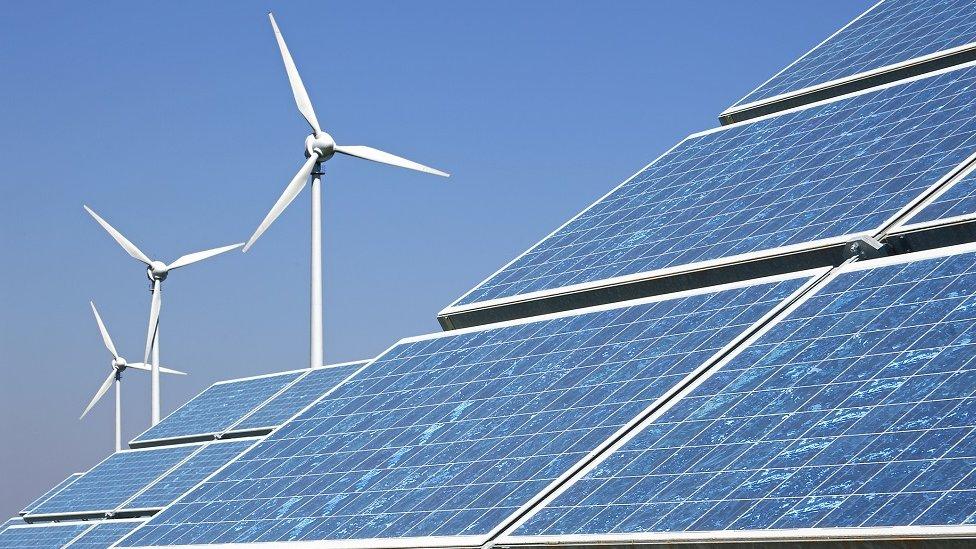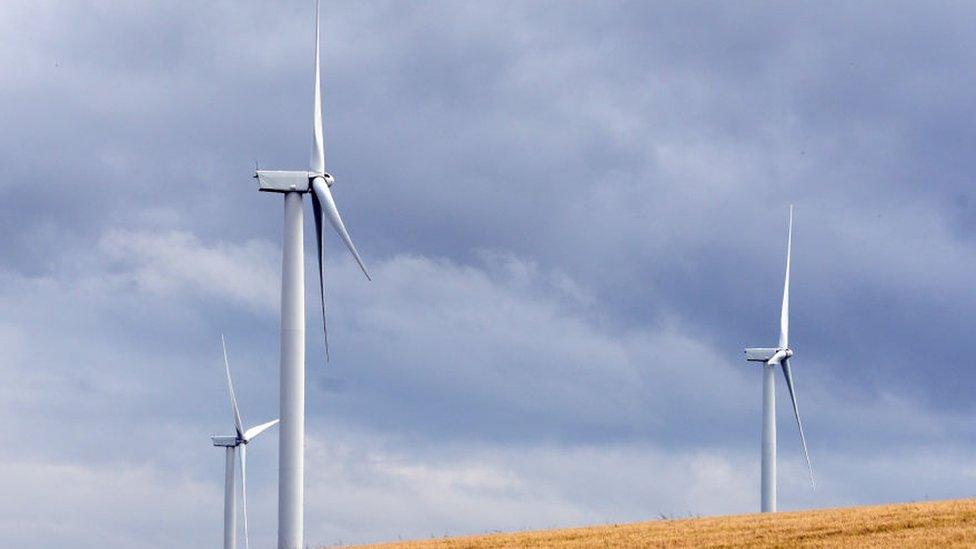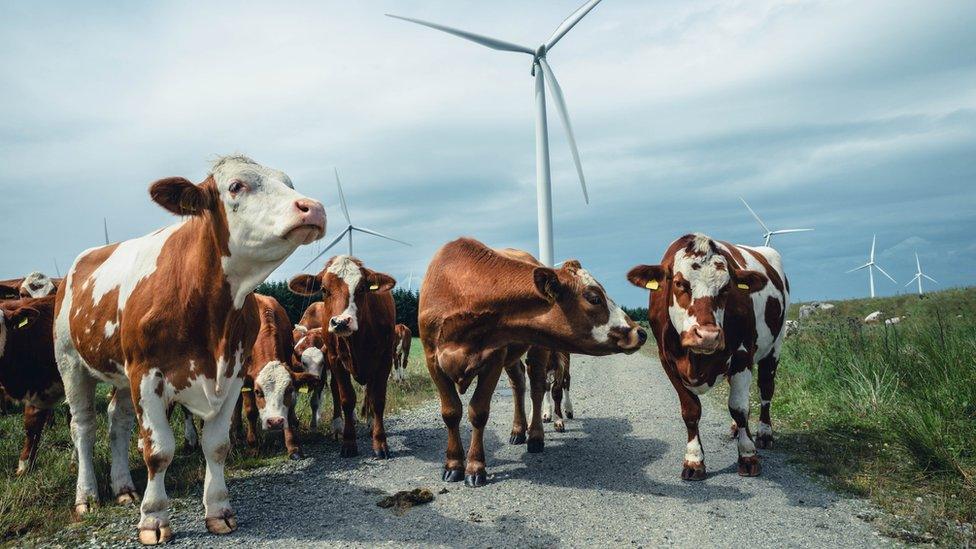Net zero: NI has 'no powers' to meet decarbonisation goals
- Published

Northern Ireland has a goal of generating 80% of its energy from renewable sources by 2030
Northern Ireland has "no powers" to support its climate change goals, MPs have been told.
Members are concerned the sector will fail to meet the legally-binding target of 80% of energy consumption from renewable sources by 2030.
The Northern Ireland Affairs Committee inquiry, external into barriers to renewable energy held its first hearing on Wednesday.
MPs were told statutory powers in Northern Ireland are twenty years old.
The Utility Regulator told the inquiry the last major piece of regulatory legislation in Northern Ireland came in 2003.
Since then, John French said, the equivalent body in Great Britain had fifteen pieces of legislation.
"We need powers to be able to fully support government in its move to Net Zero," Mr French said.
"We're trying to bend and use old bits of legislation, old statutory powers really, to meet a modern world. We need our legislative powers to come up to date with our equivalent in Ireland and Great Britain, so we're behind on that."
'Leaders to laggards'
Steven Agnew from the sector body RenewableNI said renewable energy could help reduce costs for consumers, but that development had slowed.
"Northern Ireland risks going from leaders to laggards in terms of renewables because we have had a policy vacuum now for effectively ten years. And where we connected 400MW in 2016 of new renewables, in the past five years we've only connected 86MW".
He added: "So while the rest of the world is accelerating the renewables rollout, Northern Ireland has taken its foot off the accelerator and we've seen a downturn in investment".
The potential for renewable generation was highlighted by Gareth Brown from the grid operator SONI.
He said it was among "the only power systems in the world" able to handle 75% of renewable electricity at any moment in time.
But he added that the scale required to meet the 2030 goal of 80% of electricity consumption coming from renewable sources was "unprecedented".
The planning system was also criticised, with Roger Henderson from NIE Networks telling the committee that boldness in vision needed to be matched with boldness in action.
And while consumers were much more concerned with the cost of their energy, Peter McClenaghan from the Consumer Council said adequate support would help them transition to more green sources of home heating and transport.
The committee also heard from other representatives including Derek Sculley from the energy company Energia. Its call for evidence remains open until 24 January 2024.
Related topics
- Published14 December 2023

- Published9 March 2023

